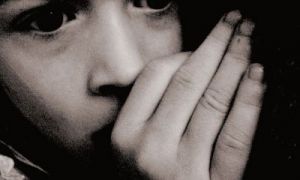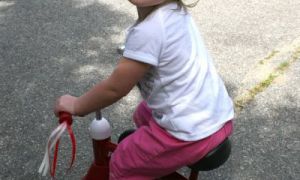

This learning experience is designed to approach the topic gently through play, storytelling, small‑world exploration, and hands‑on creativity. Rather than focusing on danger, it highlights helpers, community care, and nature’s remarkable ability to heal and regrow. The aim is to empower children with knowledge in a developmentally appropriate way, supporting emotional regulation while strengthening their connection to Country and community.
By engaging with familiar materials, calm routines, and open‑ended play, children can explore big ideas safety, responsibility, resilience, and environmental cycles in ways that feel safe, supported, and meaningful. This plan honours children’s voices, respects cultural perspectives on fire and land care, and provides educators with a thoughtful, responsive framework for guiding conversations during bushfire season.
Celebrate global traditions, spark curiosity, and build cultural awareness with this beautifully designed poster set featuring Santa figures from around the world. These posters introduce children to the diverse ways different cultures celebrate the festive season through clothing, colours, names, and unique customs.
Bushfires are a natural part of the Australian landscape, but for young children they can also be confusing, worrying, or emotionally charged—especially when smoke, sirens, or community conversations become part of their daily experience. In early childhood settings, educators play a vital role in helping children make sense of what they see and hear in a way that is safe, honest, and developmentally appropriate.
Talking about bushfires with young children is not about giving detailed information or exposing them to frightening images. Instead, it is about offering calm explanations, reassuring routines, and opportunities for children to express their thoughts through play, art, and conversation. When approached thoughtfully, these discussions can strengthen children’s sense of safety, build resilience, and deepen their understanding of nature, community helpers, and environmental regrowth.
Pattern blocks are a classic early childhood resource, and the Christmas Pattern Block Mats add a joyful seasonal twist that children absolutely love. These printables invite children to create festive images using standard pattern blocks, supporting spatial reasoning, problem‑solving, and shape recognition in a hands‑on, engaging way.
Whether you’re planning Christmas activities, setting up a math provocation, or looking for quiet table tasks during the festive season, these mats are a perfect addition to your program.
Support toddler identity development through choices, routines, relationships, and play. Explore practical examples that build autonomy, belonging, and emotional confidence.
Toddlers develop a strong sense of identity through everyday choices, warm relationships, predictable routines, and meaningful play. When educators intentionally design experiences that honour children’s autonomy, culture, emotions, and social connections, toddlers begin to see themselves as capable, valued, and connected members of their community.
These experiences don’t need to be elaborate. In fact, identity is built most powerfully through repetition, belonging, and being truly seen.
The 10 Free Santa Beard Cutting printables are a simple yet powerful activity designed to help children practice their cutting skills. By trimming Santa’s beard along different types of lines, children engage in a playful, festive task that builds essential developmental skills.
Morning group time sets the tone for the day in early childhood settings. For children aged 3–5, this is a golden opportunity to build belonging, strengthen language, nurture rhythm, and ease transitions into play and learning. A well‑designed group time moves calmly from centering rituals into energising activities, balancing structure with child‑led moments. Below are engaging strategies and examples that educators can adapt to their own classrooms, ensuring mornings feel joyful, connected, and purposeful.
In early childhood settings, emotional literacy is foundational to well-being, learning, and relationships. The free printable Feeling Check-In posters featuring clear visuals, child-friendly language, and actionable strategies offer educators a powerful way to support children in identifying, expressing, and managing their emotions. Whether used during transitions, check-ins, or moments of dysregulation, these posters help embed emotional intelligence into daily practice.
Dinosaurs have always captured the imagination of children, making them the perfect theme for engaging classroom activities. This cut-and-paste puzzle printable combines fun with purposeful learning, offering educators a resource that supports fine motor development, problem-solving, and creativity all while aligning with the EYLF outcomes.
Remembrance Day, observed on 11 November, honours those who served and sacrificed in war and peacekeeping efforts. While the concept of war may be too complex for toddlers and preschoolers, educators and families can introduce the day through gentle, symbolic, and emotionally resonant experiences.
 Toddlers have a greater understanding of the world around them by this stage. Their cognitive development (also known as intellectual development and thinking skills) continues… Read More
Toddlers have a greater understanding of the world around them by this stage. Their cognitive development (also known as intellectual development and thinking skills) continues… Read More
 Infants begin to develop trust when parents begin to fulfil their needs. Such as changing an infant's nappy when needed, feeding on request and holding… Read More
Infants begin to develop trust when parents begin to fulfil their needs. Such as changing an infant's nappy when needed, feeding on request and holding… Read More
 Beginning at birth the construction of thought processes, such as memory, problem solving, exploration of objects etc, is an important part of an infant’s cognitive… Read More
Beginning at birth the construction of thought processes, such as memory, problem solving, exploration of objects etc, is an important part of an infant’s cognitive… Read More
 Toddlers want to do more on their own and do not like it when you begin to establish limits on their behaviour. Tantrums can become… Read More
Toddlers want to do more on their own and do not like it when you begin to establish limits on their behaviour. Tantrums can become… Read More
 Your preschooler is now able to focus their attention more accurately and is less influenced by distractions. The intensity of questions increase as your child… Read More
Your preschooler is now able to focus their attention more accurately and is less influenced by distractions. The intensity of questions increase as your child… Read More
 John Dewey is often seen as the proponent of learning by doing – rather than learning by passively receiving. He believed that each child was active,… Read More
John Dewey is often seen as the proponent of learning by doing – rather than learning by passively receiving. He believed that each child was active,… Read More
 Toddler advance and gains new skills in Gross Motor Development milestones achieved throughout earlier years. Co-ordination and challenges that could not be performed before such… Read More
Toddler advance and gains new skills in Gross Motor Development milestones achieved throughout earlier years. Co-ordination and challenges that could not be performed before such… Read More
 Erik Erikson developed a psychosocial theory to understand how we each develop our identities through eight stages of psychosocial development from infancy to adulthood. The… Read More
Erik Erikson developed a psychosocial theory to understand how we each develop our identities through eight stages of psychosocial development from infancy to adulthood. The… Read More
 At this point preschoolers begin to interact effectively with others. Play becomes more innovative and organized and “boyfriend” or “girlfriend” begins to emerge. Preschoolers have… Read More
At this point preschoolers begin to interact effectively with others. Play becomes more innovative and organized and “boyfriend” or “girlfriend” begins to emerge. Preschoolers have… Read More
 From now, babies begin to identify and respond to their own feelings, understanding other's feelings & needs and interact positively with others. A baby's social and… Read More
From now, babies begin to identify and respond to their own feelings, understanding other's feelings & needs and interact positively with others. A baby's social and… Read More

When you were little were you ever afraid of the dark? Or small creepy insects?...
See more...
Toddler advance and gains new skills in Gross Motor Development milestones achieved throughout earlier years...
See more...
Tantrums can be intense, unpredictable, and emotionally draining for both children and adults. But beneath...
See more...© 2009-2025 Aussie Childcare Network Pty Ltd. All Rights Reserved.

